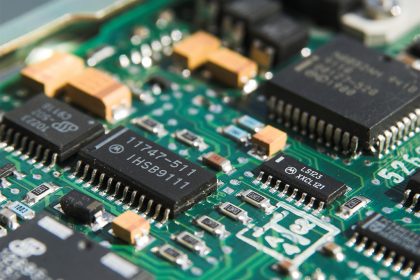In the last decade, the chipmaking and semiconductor industry have expanded massively making a major footprint on the global economy. Here’s a look into how companies are investing massively and technology trends shift.
Over the last decade, specifically after the 2008 global economic recession, chipmakers have emerged as the best performing industry across sectors and regions. The latest industry report shows that the chipmaking industry witnessed a 377% growth in the last 10 years. This is double the growth of the S&P 500 during the same period.
This shows that the semiconductor industry remains at the core of this rapidly changing technology. Despite new technologies like AI, blockchain, ML, and others making swift penetration, the demand for high-end hardware continues to grow. It turns out that the chipmaking industry serves as the backbone of the global economy.
Stacy Rasgon, a popular analyst of the tech industry, spoke to CNBC about how the industry evolved. In June 2009, Rasgon unveiled his first coverage on semiconductors after which the industry has undergone a sea change. Rasgon said:
“I launched right at the bottom with a really negative view on the sector. Literally six weeks after I launched, everybody started beating numbers by double digits.”
He added that the Philadelphia Semiconductor index, a 30-stock benchmark for the sector, almost doubled from its bottom in November 2008. Now, 10 years down the line, the semiconductor industry has made a strong footprint on the global economy. Almost every electronic device we use from smartphones, smart speakers, headphones, battery packs, etc. semiconductors are the essential products powering these devices.
Tech Companies Pour Massive Investments for Chipmaking
Despite, the traditional companies like NXP Semiconductor, Intel and Qualcomm expanding their base, other tech companies are also pouring massive investments in making their native chips. For e.g. tech giant Apple makes its own Bionic line of chips. Amazon has Graviton series of chips, and Google has its Tensor Processing Unit.
On the other hand, South Korean tech giant Samsung Electronics has pledged over $100 billion in investments in making their own chips. Samsung is increasingly focused on making miniaturized semiconductors using the extreme ultraviolet lithography (EUV) process. Yoon Jong Shik, executive vice president of Samsung’s foundry business, said:
“A new market is opening up. Companies like Amazon, Google and Alibaba, which lack experience in silicon design, are seeking to make chips with their own concept ideas in order to boost their services. I think this would bring a significant breakthrough for our non-memory chip business.”
In the semiconductor business, Samsung also has a strong competitor in Asia. The Taiwan Semiconductor Manufacturing Co. (TMSC) is another chipmaking giant in this region with potential clients like Google and Apple. TMSC is also pushing the use of the EUV process in making to accomplish a 5-nanometer production process.
next